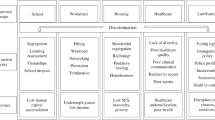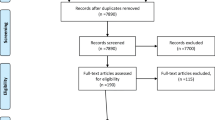Abstract
The author demonstrates that professional bioethics is culturally very risk averse when it comes to evaluating the possible ethical consequences of new technologies such as genetic testing, human embryonic stem cells, and reproductive cloning. Deeper involvement in the Federal regulatory process by bioethicists will exacerbate this tendency toward risk aversion. This cultural bias toward caution will tempt many bioethicists to look to the so-called precautionary principle for policy guidance. Adopting the precautionary principle would harm patients by slowing the development of new therapies. The author argues that bioethicists should reject the precautionary principle and instead rely on conscientious trial and error as a superior way to approach implementing new biomedical technologies ethically.
Similar content being viewed by others
References
Annas, G. cited by Saltus, R. (September 2, 1999a) Altered Genes Produce Smart Mice, Tough Questions, The Boston Globe, A1 (downloaded from Nexis).
Annas, G. cited by Bailey, R. (Aug/Sept, 1999b) Warning: Bioethics May Be Hazardous to Your Health. Reason 31(4), 24-31.
Annas, G. cited by Bailey, R. (April, 1999c) Precautionary Tale. Reason 30(11), 36-41.
Callahan, D. cited by Bailey, R. (May, 2000) Extended Life, Eternal Life. Reason 32(1), 9.
Callahan, D. (1998) False Hopes: Why America's Quest for Perfect Health Is a Recipe for Failure. New York: Simon & Schuster.
Dawkins, R. cited by Riddell, M. (March 26, 1999) The Taboo Against Cannibalism is the Strongest We Have — but Even that Needs to be Looked at; Interview with Academic and Author Richard Dawkins. New Statesman, 129(4429), 18 et seq. (downloaded from Nexis).
Engelhardt, H.T., cited by Bailey, R. (Aug/Sept, 1999) Warning: Bioethics May Be Hazardous to Your Health. Reason 31(4), 24-31.
Fletcher, J. cited by Bailey, R. (May, 1997) Twin Paradox: What Exactly is Wrong with Cloning Human Beings? Reason 29(1), 52 et seq.
Howard, J., cited by Bailey, R. (April, 1999) Precautionary Tale. Reason 30(11), 36-41.
Kass, L., cited by Wade, N. (March 8, 2000) In Quest to Extend Life, Debating a Need for Death: Ethicists Speak. Austin American-Statesman, A18 (downloaded from Nexis).
Kass, L. cited by Bailey, R. (Dec, 1999a) Petri Dish Politics. Reason 31(7), 32-39.
Kass, L. (September, 1999b) The Moral Meaning of Genetic Technology. Commentary 108(2), 32 et seq.
Lanza, R. cited by Bailey, R. (Sept. 8, 2000) “A Low-Level Form of Civil War”, Reason Online, http://www.reason.com/bi/summit-9-08.html.
Macklin, R. cited by Begley, S. (November 9, 1998) Designer Babies. Newsweek, p. 61 (downloaded from Nexis).
Mitchell, William C. and Simmons, Randy T. (September, 1995) Pathological Politics: The Anatomy of Government Failure. Society 32(6), 30 et seq (downloaded from Nexis).
Montague, P. (February 19, 1998) The Precautionary Principle. Rachel's Environment and Health Weekly, No. 586, p. 1 (downloaded from http://www.monitor.net/rachel/r586.html).
Parens, E. (January 11, 1998) Is Better Always Good? The Enhancement Project. The Hastings Center Report 28(1), s1 et seq. (downloaded from Nexis).
Pellegrino, E. cited by Bailey, R. (Dec, 1999) Petri Dish Politics. Reason 31(7), 32-39.
Purdy, S. (May, 1998-June, 1998) State of the Debate: Dolly and Madison. The American Prospect, 88 et seq. (downloaded from Nexis).
Schwartz, William B. (1998) Life Without Disease: The Pursuit of Medical Utopia. Los Angeles: University of California Press.
Shapiro, H. cited by Bailey, R. (Aug/Sept, 1999) Warning: Bioethics May Be Hazardous to Your Health. Reason 31(4), 24-31.
Stock, G. cited by Bailey, R. (Aug/Sept, 1999) Warning: Bioethics May Be Hazardous to Your Health. Reason 31(4), 24-31.
Wright, R. (January 11, 1999) The Future of Medicine: Who Gets the Good Genes? Time, 67 (downloaded from Nexis).
Author information
Authors and Affiliations
Additional information
Science Correspondent, Reason
Rights and permissions
About this article
Cite this article
Bailey, R. Deciding about your Health Care: The Ethicist as Policy-Maker. Health Care Analysis 9, 265–281 (2001). https://doi.org/10.1023/A:1012993514088
Issue Date:
DOI: https://doi.org/10.1023/A:1012993514088




